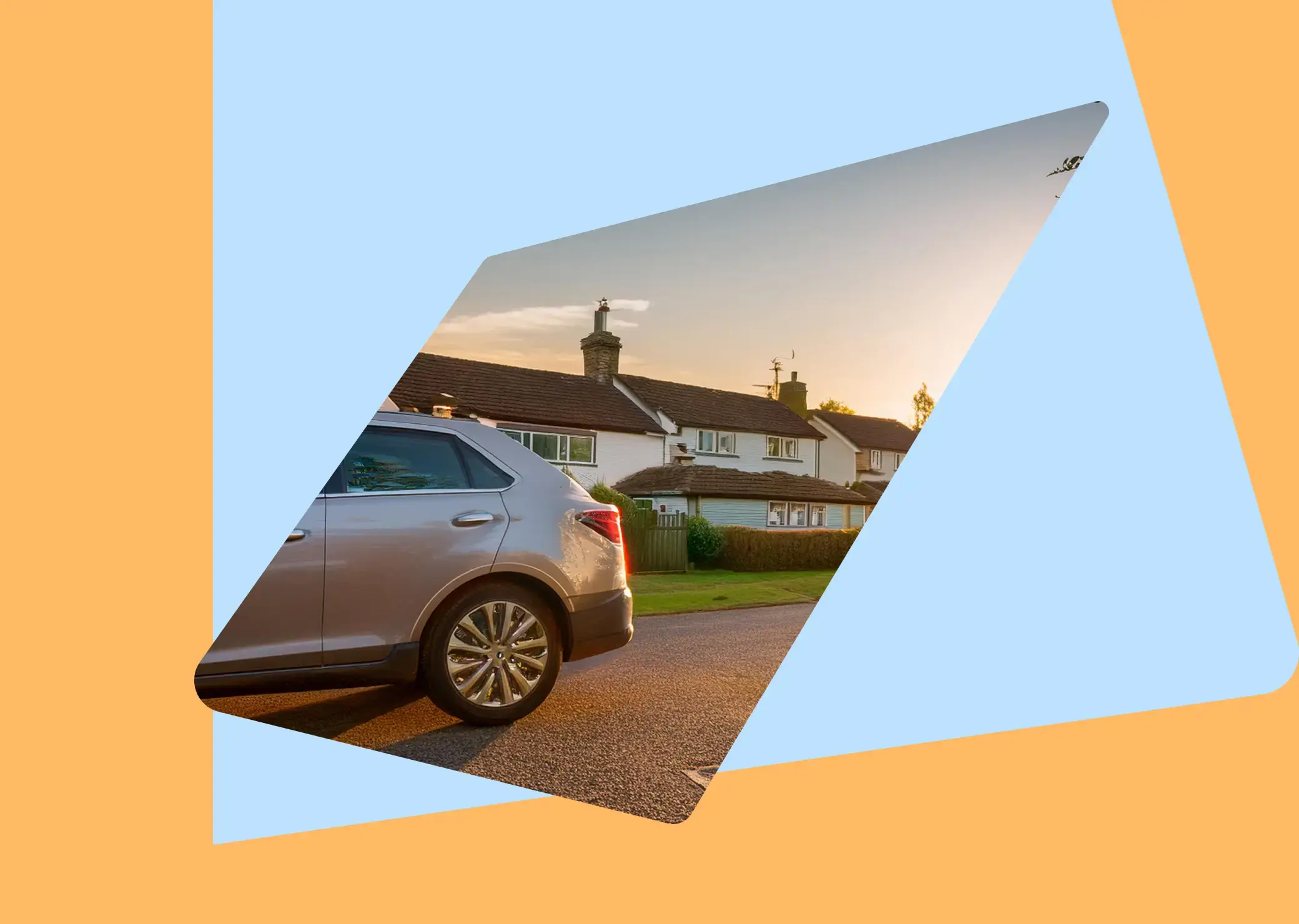- Carmoola
- Blog
- Car Finance
- When do insurers decide to write off a car?
- 🗞 Car Finance
- Last updated: Apr 9, 2025
- 9 Min Read
When do insurers decide to write off a car?
Written by

Verified by


See how much you can borrow in 60 seconds
| Representative Example | |
|---|---|
| Loan amount | £10,000 |
| Interest rate | 13.9% APR |
| 54 payments of | £246 |
| Total cost of credit | £3,284 |
| Option to purchase fee | £1 |
| Total payable | £13,285 |
None of us want to think about the possibility of being involved in a car accident, but unfortunately, no matter how carefully you look after your car, crashes, bangs and bumps happen every day. If your car is damaged and no longer safe to drive, there’s a chance your insurance company will write it off - let’s get up to speed on why this can happen and what it means for you.
What do insurers consider before writing off a car?
One of the first things you will consider if you’re unlucky enough to have a car involved in an accident, will be to file a claim with your insurance company for the damage to your car.
The insurer will take a few things into consideration before deciding whether to write off your car, including:
Repair costs vs. car value
If the cost of repairing the car is more than the car’s current market value (regardless of how much you paid when you bought it), then they might write it off.
Safety concerns
If the damage to the car affects its safety features, like air bags, for example, the insurer may be more inclined to write it off, even if it’s technically possible to repair it.
Parts availability
If your car is older, or if it’s a rare model, it might be harder and more expensive to get the right parts to repair it, so this might make it more likely to be written off.
What types of car write-offs are there?
In insurance terms, if your car gets written off, it may be referred to as a ‘total loss’ or a ‘constructive total loss’.
A total loss is when the car is so badly damaged that it’s beyond repair. A ‘constructive total loss’ is when a car is damaged, and could be repaired, but the cost of getting it back to a roadworthy condition would be more than the cost of the vehicle. This type of loss is common if a car is involved in a bad accident, but it can also happen when an older car that doesn’t have much book value gets damaged.
If your insurer declares your car to be a ’total loss’ or a ‘constructive total loss’, they’ll usually pay out the current market value of the car, rather than cover the cost of repairs.
What happens after a car is written off?
When you’ve had the call from your insurance company to tell you your car is a write-off, the next steps depend on how badly your car is damaged. If it’s in really bad shape and deemed to be beyond repair, your insurance company will usually take care of having it scrapped.
You’ll need to send your V5C logbook to your insurance company, but take out the yellow ‘sell, transfer or part-exchange your vehicle to the motor trade’ section for your own records. You’ll also need to let the DVLA know that your car’s been written off - if you don’t, you could be landed with a £1,000 fine. If your car has a private registration number, you can apply to take it off the vehicle via GOV.UK.
Sometimes, insurance companies will label a car as a write-off because it doesn’t make financial sense for them to pay for the repairs, but that doesn’t necessarily mean you have to kiss your car goodbye. If your car is classed as category N or S (see below for what the categories mean), then you could still get it repaired to be roadworthy and get it back on the road. The DVLA may need to take a look at the car to make sure it’s roadworthy, and then the write-off category will get recorded in the V5C logbook for future reference.
How much will I get as an insurance payout?
Your insurance company should pay out a settlement fee when your car is written off. If you have comprehensive insurance, or if you’re making a no-fault claim on third-party or third-party fire and theft insurance, the settlement fee will be based on the current market value of your car, minus the excess amount on your policy.
What if my car is written off while it’s on finance?
If your car’s on finance when it’s written off, you’d usually use the insurance payout to pay off the balance on your finance agreement.
There’s a chance you could find yourself in the tricky situation where the insurance payout is less than your outstanding balance - in this scenario, the best thing to do is speak to your lender to come to an agreement about how to pay off the money that’s left.
You could negotiate with your insurance company to try to get a bigger payout, to cover the shortfall on your finance, but bear in mind they’ll have come up with the settlement figure based on the car’s market value. You’ll need to provide evidence to show why you think the payout was too low.
What are the different car write off categories?
Cars can get written off after sustaining all kinds of damage, from seemingly minor things right up to serious crashes. If your insurance company decides your car is a write-off, it’ll be classed in one of these categories:
Category A (scrap)
The car is too damaged or old to be repaired. The whole thing should be crushed, and it can’t be used for parts.
Category B (break)
The car is too damaged or old to be repaired, but some parts can be re-used or sold second-hand, as long as they’re removed by an expert. If a car is a Category B write-off, it can’t be sold second-hand as a complete vehicle.
Category C (too expensive to repair)
The car could be repaired, but the repairs would cost more than the car’s worth.
Category D (total costs make it too expensive to repair)
The cost of repairing the car would be less than it’s worth, but the other costs involved, like transporting the vehicle, take the total cost over the limit of the car’s value.
Category N (non-structurally damaged repairable)
The car has only been damaged superficially, the structural integrity hasn’t been affected, and the car can be repaired. There’s no need to re-register Category N cars with the DVLA, but you do need to notify them that your car was written off.
Category S (structurally damaged repairable)
The car has structural damage, but it can be repaired. All Category S cars have to be re-registered with the DVLA before they can get back on the road.
Write off categories were updated in 2017, and Categories C and D aren’t used anymore. But you might occasionally come across an older car listed under Category C or D.
Can I buy a written-off car?
Buying a written-off car could save you some money, but it’s a bit of a gamble. Depending on the category, there’s nothing stopping you buying a written-off car and either repairing it and getting it back on the road, or using some of the car’s individual parts.
It’s a risky business, though, so make sure you do your homework first. Our guides on buying written-off cars will tell you what you need to bear in mind:
- Should I buy a Category S car?
- Should I buy a Category C car?
- Should I buy a Category D car?
- Should I buy a Category N car?
The exception is Category A cars, as these are legally deemed unsafe to drive, so they have to be crushed.
FAQs about writing off cars
Can I get a car back after it's been written off?
What happens to my car after it's written off?
How does a car write-off affect my insurance premiums?
How long does it take to write-off a car?
The whole process can take a few weeks, but it could take longer if there are delays with the damage assessment, or dispute over the settlement.
See how much you can borrow in 60 seconds
| Representative Example | |
|---|---|
| Loan amount | £10,000 |
| Interest rate | 13.9% APR |
| 54 payments of | £246 |
| Total cost of credit | £3,284 |
| Option to purchase fee | £1 |
| Total payable | £13,285 |
Related articles
Can you drive in the UK on a foreign licence?
If you’re new to the UK, you might be keen to get behind the wheel to explore on the open road. You can usually drive in the UK...
What happens if my car is written off and it’s still on finance?
Accidents happen. When split-second decisions and challenging conditions make driving difficult at the best of times, even the...
Which credit reference agencies do lenders use?
When applying for car finance, your credit score can make a significant difference to the APR you’re offered, your repayment...

.webp?width=832&height=592&name=customer-support%20(1).webp)










.webp?width=400&height=285&name=online-shoppers-with-dog%20(1).webp)


.jpg?width=500&height=356&name=Vintage%20car%20going%20to%20an%20old%20town-1%20(1).jpg)





